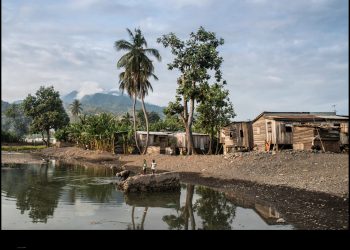Turkey was severely shaken by earthquakes of magnitudes of 7.7 and 7.6 that were centered in Kahramanmaraş. More people have died as a result of the disaster than were by the earthquake of August 17, 1999. Finance experts are concerned about this.
Earthquakes with Maraş as their center devastated ten provinces, home to 13.4 million people. 9.3% of Turkey‘s total national income of 241 billion dollars is generated in these ten provinces. The economic consequences of the earthquake were addressed by economists.
The Scope of the Earthquake Extends to 10 Provinces
Significant material and moral loss were brought on by this earthquake. The provinces most severely impacted by the earthquake catastrophe include Adana, Adıyaman, Diyarbakır, Gaziantep, Hatay, Malatya, Kahramanmaraş, Şanlıurfa, Kilis, and Osmaniye. In a research, Ercan Türkan provided the indicators pertaining to the scope and composition of economic activity in the 10 provinces most severely impacted by the earthquake tragedy.

What Do the Finance Experts Say About the Earthquake’s Consequences?
The impact of the earthquake on GDP was estimated by Reuters, and three economists whose estimates they consulted, to be a loss of between 0.6 and 2 percentage points. Economists base their predictions on the assumption that a 50% disruption in production output might be made up for in 6–12 months. According to a representative, the earthquake may cause this year’s growth to be 1-2 percentage points lower than expected.
How will the Economy Fare After This Earthquake?
The region is particularly essential for agriculture, even if the short-term loss of GDP might not be large. Some claim that the agricultural products coming from these cities will contribute to the market less or later, which will have a significant impact on food inflation.
The external balance is not anticipated to alter much, despite the fact that the region’s export contribution cannot be understated and imports will rise as a result of the earthquake relief effort. However, imports might also fall as the region’s demand for luxury goods and energy will decline because of the catastrophe.













